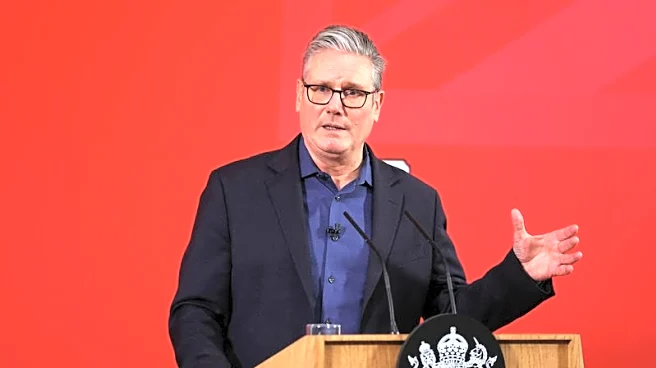What's Happening?
The closing session of the COP30 U.N. climate summit was resumed by President Andre Correa do Lago after a temporary suspension due to procedural complaints. The plenary was halted when some parties expressed that their objections were not adequately
considered before parts of the agreement package were approved. Despite these concerns, Correa do Lago confirmed that the decisions made during the session would remain in effect following consultations.
Why It's Important?
The procedural complaints at COP30 highlight the complexities and challenges in reaching consensus on global climate agreements. The ability to address and resolve such disputes is crucial for the credibility and effectiveness of international climate negotiations. The decisions made at COP30 could have significant implications for global climate policy, impacting how countries implement measures to combat climate change. Ensuring that all parties feel heard and that their concerns are addressed is vital for maintaining trust and cooperation among nations.
What's Next?
Following the resumption of the session, stakeholders will likely continue to monitor the implementation of the agreed measures and assess their impact on global climate efforts. Countries may need to adjust their national policies to align with the outcomes of COP30. Additionally, there may be further discussions and negotiations to address any unresolved issues or to refine the agreement's provisions.
Beyond the Headlines
The procedural issues at COP30 underscore the importance of transparent and inclusive negotiation processes in international diplomacy. Ensuring that all voices are heard and considered can prevent disputes and foster a more collaborative environment. This incident may prompt future climate summits to review and improve their procedural frameworks to enhance participation and consensus-building.

















